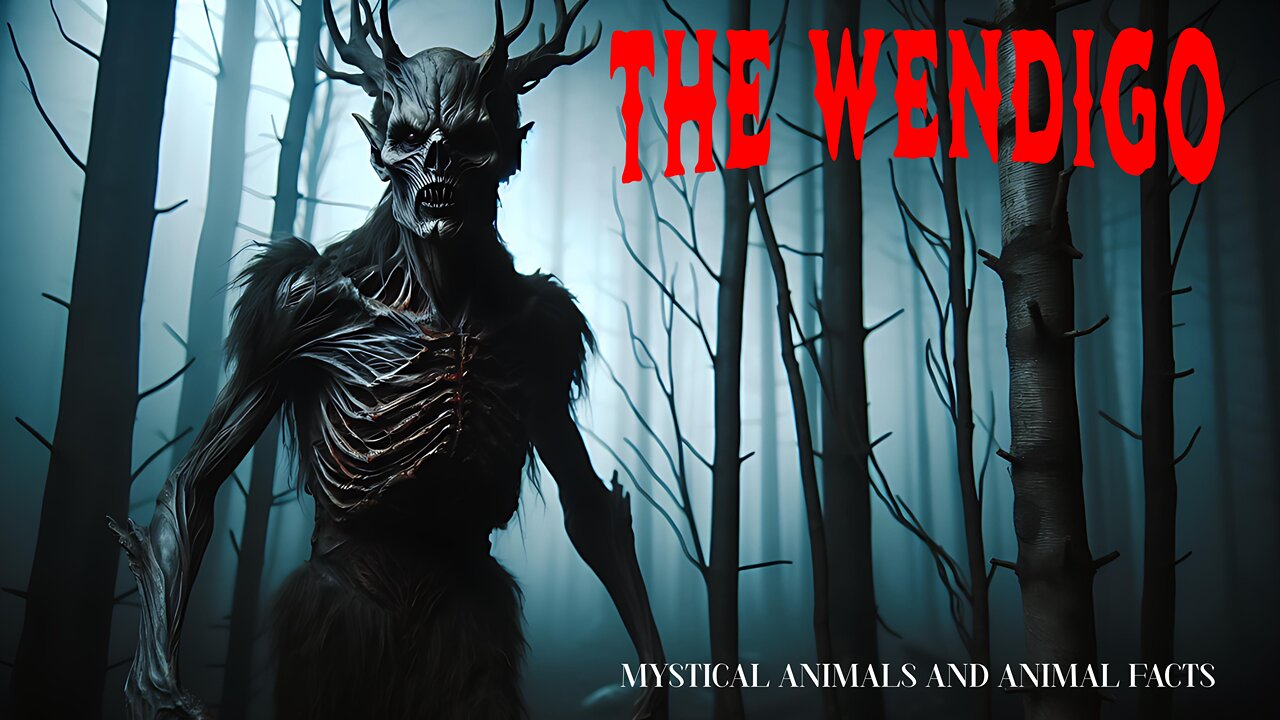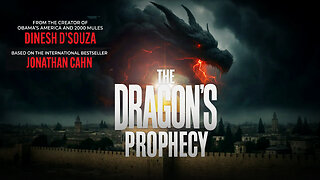Premium Only Content

The Wendigo a Mystical Creature of the Native Peoples - mini documentary
Shirts and more
Designs Redbubble
https://www.redbubble.com/people/ReneMM/shop?asc=u
Spreadshirt.at
https://www.spreadshirt.at/shop/user/renemm/?srEdit=pa#?affiliateId=1257693
Spreadshirt.com
https://www.spreadshirt.com/shop/user/renemm/?srEdit=pa#?affiliateId=11625
Shirtee.at
https://www.shirtee.com/de/catalogsearch/result/index/designer_id/112048/all_stores/
1/
Pictures
https://fineartamerica.com/profiles/rene-mitterlehner
The Wendigo, a central figure in the mythology of the Algonquin-speaking peoples of North America such as the Ojibwe, Cree and Innu, is a supernatural being that embodies the destructive consequences of greed, cannibalism and the breaking of natural and social laws; its name, derived from terms such as “wiindigoo” or “Wīhtikow”, is often translated as “evil spirit” or “eternally hungry” and refers to its role as a personified warning against excesses in an environment characterized by harsh winters and scarce resources. The figure of the Wendigo is described as an emaciated, ice-encrusted creature whose body is characterized by emaciated limbs, pale, cracked skin and animal-like features such as antlers or claws; its breath is said to spread frost, its insatiable hunger - symbolized by hollow eyes and blood-stained lips - drives it to devour all living things, with each bite only intensifying its urge until it ultimately consumes itself. The myth originated as an ethical doctrine in communities that relied on cooperation and respect for nature; those who ate human flesh in famine to survive, according to tradition, not only lost their humanity, but became possessed by the spirit of the Wendigo, which triggered a physical and spiritual metamorphosis: the affected person's skin hardened into ice, their heart froze and their consciousness gave way to an impulsive will to destroy. However, this transformation was not only a punishment for cannibalism, but also for other transgressions such as refusing to share resources, wasting hunting prey or voluntarily isolating oneself from the community; the Wendigo thus represented all actions that threatened the fragile balance between man and nature. To counter the danger, the Algonquin peoples developed ritualized practices: Stories about the Wendigo were only allowed to be told in winter so as not to invoke its presence unnecessarily; shamans performed purification ceremonies with incense to heal those afflicted by Wendigo thoughts, and in extreme cases, killing a transformed being was considered a necessary duty, burning its heart and scattering the ashes to prevent another curse. Regional variations of the myth reflect local ecological conditions: among the Ojibwe, the Wendigo is often seen as the spirit of greedy hunters who disregarded nature in life; the Cree emphasize its connection to icy storms, while the Innu describe it as an invisible, maddening force that roams the forests. At its core, however, the message remains universal: the Wendigo warns against self-destruction through excess and emphasizes indigenous values such as a sense of community, respect for non-human beings and sustainable management of the environment; historically, this was reflected in decisions to fast collectively rather than sacrifice individuals, or in taboos that prohibited excessive hunting. Even today, the myth remains alive, being used in schools and ceremonies to remind younger generations of traditional responsibilities; indigenous activists also use it as a metaphor for modern threats such as resource exploitation, which they compare to the “greed of the Wendigo”. The transmission of the stories follows strict cultural rules to preserve their spiritual depth; many details are passed down exclusively orally, and external representations that reduce the Wendigo to a horror monster are criticized for ignoring its role as a teaching figure and ecological symbol. As a timeless allegory, the Wendigo combines the fear of moral decay with the real vulnerability of human existence in a hostile environment. A very interesting mythical creature what do you think of the Wendigo. I would be very happy about a like and a subscription.
-
 30:09
30:09
Afshin Rattansi's Going Underground
19 hours ago‘Gaza Will Haunt Israel for Generations’- Mika Almog Granddaughter of Former President Shimon Peres
14.5K7 -
 15:36
15:36
Nikko Ortiz
15 hours agoBring Back Public Shaming...
18.6K9 -
 2:43:41
2:43:41
Side Scrollers Podcast
21 hours agoAsmongold Says The Online Left Are “ANIMALS” + Hasan Collar-Gate Gets WORSE + More | Side Scrollers
24.8K22 -
 1:33:41
1:33:41
Dinesh D'Souza
2 days agoThe Dragon's Prophecy Film
94.9K59 -
 LIVE
LIVE
Lofi Girl
2 years agoSynthwave Radio 🌌 - beats to chill/game to
362 watching -
 44:08
44:08
The Why Files
6 days agoThe CIA, Men in Black and the Plot to Take Out JFK | The Maury Island Incident
56K71 -
 2:07:23
2:07:23
TimcastIRL
11 hours agoTrump SLAMS China With NEW 100% Tariff, Stocks & Crypto TUMBLE | Timcast IRL
306K168 -
 5:15:25
5:15:25
SpartakusLIVE
12 hours agoBF6 LAUNCH DAY || WZ and BF6 followed by PUBG - The PERFECT Combo?
67.4K3 -
 1:33:59
1:33:59
Glenn Greenwald
14 hours agoQ&A with Glenn: Is the Gaza Peace Deal Real? Why was the Nobel Peace Prize Given to Venezuela's Opposition Leader? And More... | SYSTEM UPDATE #529
123K74 -
 1:24:01
1:24:01
Flyover Conservatives
1 day agoURGENT FINANCIAL UPDATE! October 14–31: The Great and Terrible Day Has Arrived - Bo Polny; 5 Mindsets You Must Master - Clay Clark | FOC Show
59.2K5